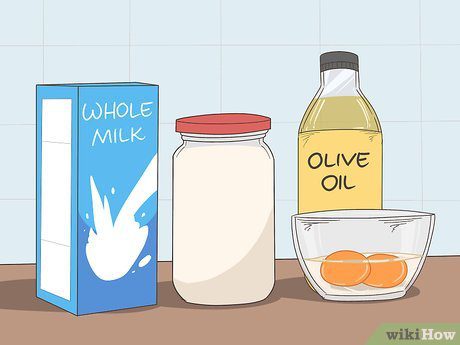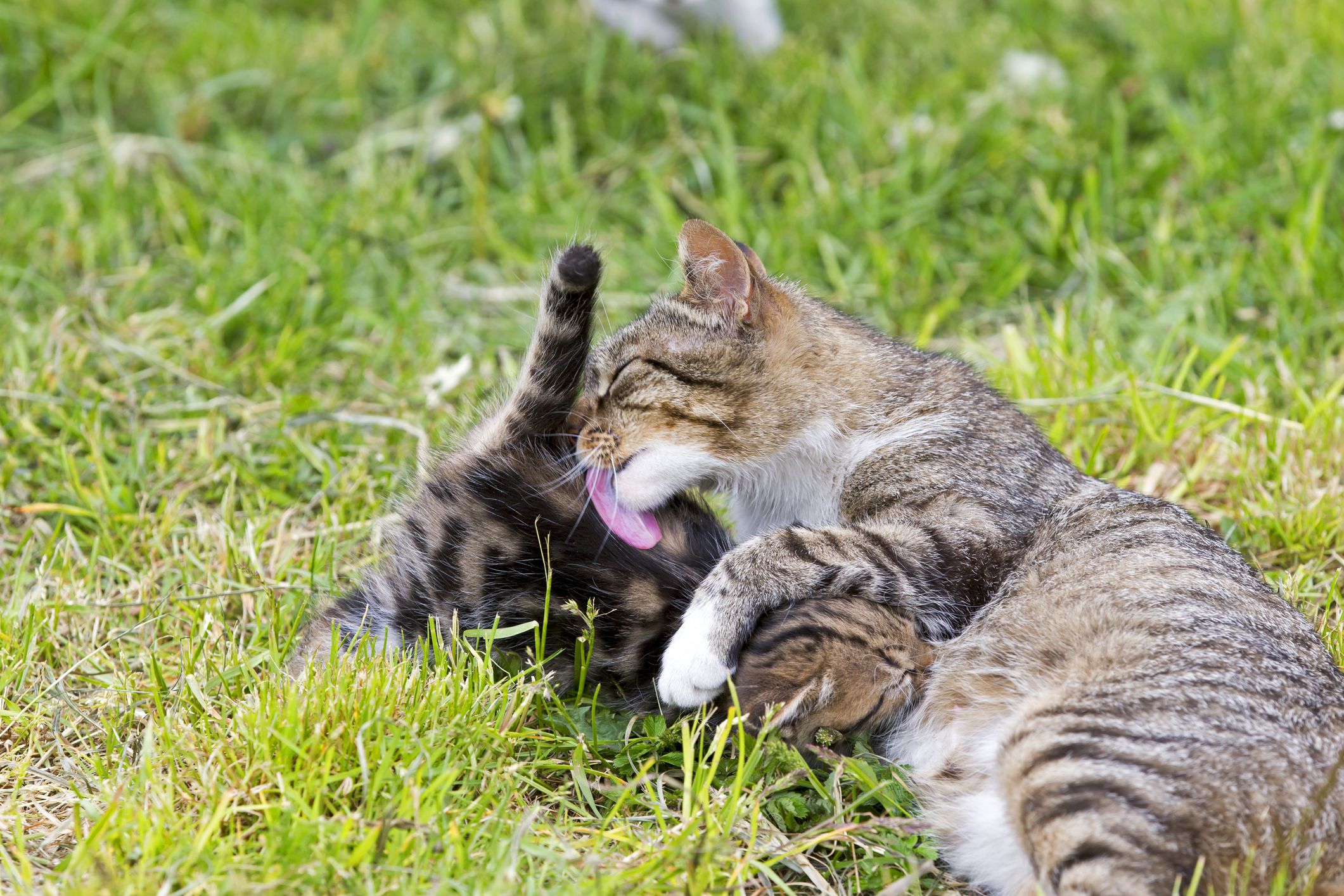Key Takeaways:
- Consult a veterinarian: If a mom cat is unable to nurse her kittens, it is important to seek guidance from a veterinarian for proper advice and care.
- Consider bottle feeding: In situations where the mom cat can't nurse, bottle feeding with kitten formula can be an alternative way to provide essential nutrition to the kittens.
- Ensure warmth and comfort: Keeping the kittens in a warm and cozy environment is crucial for their well-being, especially when they are not receiving milk from their mother.
- Monitor weight gain: Regularly weigh the kittens to ensure they are gaining weight properly. Lack of weight gain could indicate issues with feeding or health problems that require attention.
- Seek foster care or hand-rearing if necessary: If the mom cat is unable to nurse long-term, finding a foster home or taking on the responsibility of hand-rearing the kittens may be necessary for their survival and development.
Are you a cat lover? Do you find joy in taking care of adorable kittens and watching them grow? If so, then understanding what to do when a mom cat is unable to nurse her kittens is essential knowledge for any responsible pet owner. It's a situation that can arise unexpectedly, leaving you feeling helpless and unsure of what steps to take next. But fear not! In this article, we will delve into the topic of when mom cats can't nurse and provide you with valuable insights on how to handle this delicate situation. Whether you're a seasoned cat owner or just starting your journey into feline parenthood, this information will equip you with the necessary tools to ensure the health and well-being of those precious little furballs. So let's dive in and discover the best course of action when faced with this challenging scenario.
Why a Mom Cat Can't Nurse Her Kittens
Physical Health Issues
When a mom cat is unable to nurse her kittens, it could be due to physical health issues. These issues can range from mastitis, which is an infection in the mammary glands, to an injury or illness that affects the cat's ability to produce milk. In some cases, the cat may have given birth to too many kittens and doesn't have enough milk to feed them all. It's important to monitor the mom cat closely and consult with a veterinarian if you notice any signs of physical health issues.
Stress or Anxiety
Another reason why a mom cat may not be able to nurse her kittens is stress or anxiety. Cats are sensitive creatures, and if they feel stressed or anxious, it can affect their ability to care for their young. This could be caused by changes in their environment, such as moving to a new home or being exposed to loud noises. It's essential to create a calm and quiet space for the mom cat and her kittens and provide plenty of comfort and reassurance.
Signs of a Mom Cat Unable to Nurse Her Kittens
Lack of Interest in Kittens
One sign that a mom cat is unable to nurse her kittens is if she shows little interest in them. She may not try to nurse them or groom them as often as she should. Instead, she might spend more time away from them or show signs of distress when they try to approach her. If you notice these behaviors, it's crucial to intervene and provide care for the kittens.
Kittens Appear Weak or Undernourished
If the mom cat is unable to nurse her kittens properly, you may notice that the kittens appear weak or undernourished. They may have trouble gaining weight or seem lethargic. It's essential to monitor their growth and behavior closely and seek assistance if you notice any concerning signs.
Helping a Mom Cat Who Can't Nurse Her Kittens
Consulting with a Veterinarian
If you suspect that a mom cat is unable to nurse her kittens, it's crucial to consult with a veterinarian. They can assess the situation, determine the underlying cause, and provide guidance on how to care for the kittens. The veterinarian may recommend alternative feeding methods or prescribe medication if necessary.
Providing Supplemental Nutrition
To help a mom cat who can't nurse her kittens, you can provide supplemental nutrition. This can be done through bottle-feeding using kitten milk replacers or specialized formulas recommended by the veterinarian. It's important to follow the instructions provided by the veterinarian or on the product packaging to ensure the kittens receive adequate nutrition.
Alternative Ways to Feed Newborn Kittens Without Their Mom
Bottle-Feeding
Bottle-feeding is one of the most common ways to feed newborn kittens when their mom is unable to nurse them. You will need kitten bottles and nipples specifically designed for this purpose. The formula should be warmed slightly before feeding, but not too hot as it can burn the kittens' mouths. Hold the bottle at an angle and let the kittens suckle at their own pace.
Syringe Feeding
Syringe feeding is another option for feeding newborn kittens without their mom. Use a small syringe without a needle and fill it with kitten formula or milk replacer. Gently insert the syringe into the side of their mouth and slowly push out small amounts of formula at a time. Be careful not to force too much formula at once as it can cause choking.
Important Tips for Bottle-Feeding Newborn Kittens
- Use a bottle and nipple specifically designed for kittens to ensure proper feeding.
- Warm the formula before feeding, but always test it on your wrist to make sure it's not too hot.
- Hold the bottle at an angle, allowing the kittens to suckle at their own pace.
- Burp the kittens after each feeding by gently patting their backs to release any trapped air.
- Clean the bottles and nipples thoroughly after each use to prevent bacteria growth.
Frequency of Feeding Newborn Kittens Without Their Mom
Newborn kittens require frequent feedings as they have small stomachs and need a constant supply of nutrition. When bottle-feeding newborn kittens without their mom, it's recommended to feed them every 2-3 hours. This includes both day and night feedings. As they grow older, you can gradually increase the time between feedings.
Introducing Solid Food to Kittens without a Nursing Mom
When newborn kittens reach around four weeks of age, you can start introducing solid food into their diet. Begin by offering a mixture of wet kitten food and kitten formula or milk replacer. You can place small amounts on a shallow plate or in a shallow bowl. Encourage the kittens to explore and taste the food by gently guiding them towards it with your finger.
Over time, gradually decrease the amount of formula or milk replacer while increasing the quantity of wet kitten food. By around six to eight weeks of age, most kittens should be fully weaned and eating solid food on their own. Monitor their progress closely and consult with a veterinarian if you have any concerns about their transition to solid food.
In conclusion, if a mom cat is unable to nurse her kittens, there are steps you can take to ensure their well-being. Providing them with a suitable milk replacement and seeking guidance from a veterinarian will help the kittens grow strong and healthy.
What to do if mother cat won t nurse?
It is important to take the mother cat and her kittens to the vet as soon as possible. By identifying the reason why the mother cat is not feeding her kittens, there is a greater likelihood of finding a solution to encourage her to nurse them. Alternatively, you may need to take on the responsibility of caring for the kittens yourself.
What happens if Mama cat won't feed kittens?
If you observe that a mother cat is not breastfeeding kittens older than 4 weeks, this is a normal occurrence. Kittens are transitioned from the mother's milk to solid food between 4 to 8 weeks of age. It is important not to handle kittens younger than 4 weeks too much, as this can lead to the mother rejecting them due to the removal of her scent.
How long can a cat go without nursing before milk dries up?
After kittens start eating solid food, they typically stop nursing, causing a significant decrease in the mother cat's milk production. It takes a couple of weeks for the milk to completely dry up, but this process happens gradually. Initially, the teats will still be swollen and continue to produce milk.
What do you feed a kitten without its mother?
These young cats need to be fed using kitten milk replacer (known as KMR), which can be purchased as a liquid or a powder. This serves as the equivalent of baby formula for bottle-fed infants, but specifically formulated for cats. You can find the formula, bottles, and nipples at most pet supply stores without a prescription.
How long is too long for a cat to nurse?
Once the kittens reach 8 weeks of age, they should be capable of consuming solid food and the mother's milk production will decrease. While some kittens may continue nursing until they are 12 weeks old, this is usually for comfort rather than nutritional purposes.
Do cats reject kittens if you touch them?
Many people mistakenly believe that a mother cat will reject her kittens if they are touched, but this is not true. She is typically fine with human contact. However, it is possible that she may move them to a different location when you next check on them. If you come across newborn kittens, it is best to leave them alone. The mother will likely return to care for them.
















